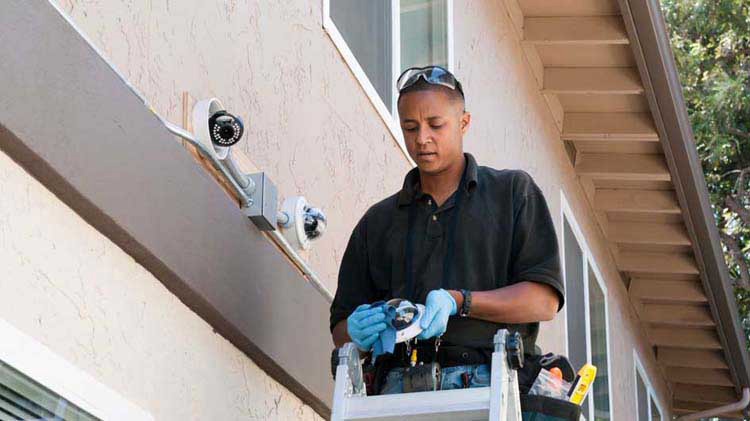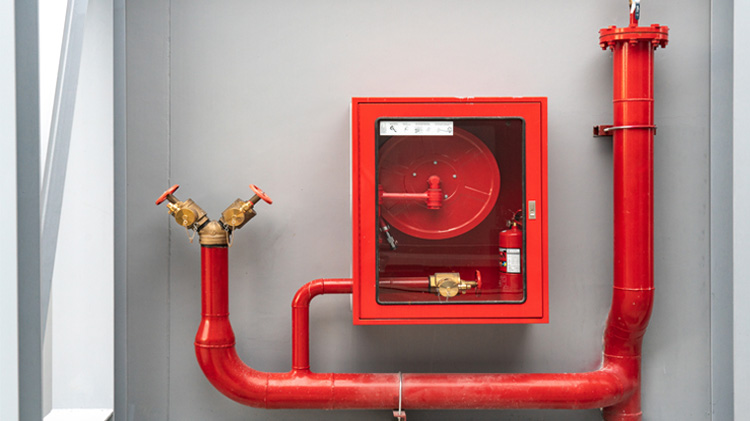How to protect your business from burglary and robbery
Burglary is often a crime of opportunity and robbery is terrifying. Incorporate these burglary and robbery prevention tips and more to help protect your business.
Burglary and robbery are crimes that can affect your business if they happen to you. In the case of burglary, thieves enter your property unlawfully and may damage and or steal your property. In the case of robbery, thieves may damage or take your property while using the threat of force or violence against a person. In both cases, these crimes are a costly source of loss for many businesses and can have a significant impact on your ability to serve customers. The following few steps are designed to help prevent business burglary and robbery and can go a long way toward protecting your investment.
Lighting and crime prevention
Burglars like to work under the cover of darkness. Good interior and exterior lighting are two of the most effective deterrents against crime.
- Pay special attention to areas that are not in plain view where intruders often gain entry. Make sure lighting fixtures stay in good working order. Damaged or burned-out bulbs should be replaced immediately.
- Reduce the chance of breakage by paying attention to where light fixtures are placed, using lights in cages and choosing durable products.
- Keep valuable merchandise illuminated but away from display windows. Thieves can smash the window and grab the goods or items displayed there and flee quickly.
- Consider adding motion-detection lights in areas where intruders may enter.
A well-maintained exterior
Overgrown shrubbery, vehicles and trash dumpsters near buildings provide excellent cover for burglars. Keeping trees and shrubs trimmed away from windows and doors can help minimize hiding places around buildings.
- Exterior windows can be covered with security glass along with burglar-resistant glazing. This provides the appearance of glass and increases security. Consult a security expert to find out more about glazing. Many window locks are simple latches that can be pried open. Ask a locksmith or security supplier about more secure window locks, such as hefty locks visible from the outside, a vinyl window lock along with a window alarm, or even window bars.
- Consider installing exterior doors constructed from solid-core wood or reinforced steel that fit tightly into the doorframe. Other burglary prevention tips include:
- A heavy-duty deadbolt lock with a heavy-duty strike plate can be installed using three-inch screws that penetrate the wall stud.
- A double-cylinder deadbolt lock can be used for doors with a small panel of glass.
- Add a doorjamb reinforcement for extra strength against an intruder trying to kick the door open.
- Avoid using doors with hinge pins on the outside where they can be easily removed. Equip outward swinging doors with hinges that have non-removable pins.
- Secure overhead garage-type doors with padlocks on the roller channel.
Business alarm system and video surveillance
An alarm system is one of the best ways you can help protect your property against burglary. There are a variety of different alarms available, ranging from very basic local alarms to central station systems. Alarms can involve protection of the perimeter, area or object.
- Perimeter protection covers the outside surface of the building.
- Area protection covers an entire space or area — such as the inside of a building.
- Object protection covers a particular object — such as a safe.
Alarm systems offer a network of surveillance equipment that automatically notifies a central monitoring service when the system detects unauthorized intruders. Trained staff at the service will then contact both the owners and the authorities.
Business and home video technology gets smaller, better and cheaper every year. For a modest investment, you can cover the perimeter of your business with video surveillance, and also digitally record substantial amounts of video. What you capture could help in catching a thief and retrieving your property. Closed-circuit television cameras (CCTV) are also good burglary deterrent devices.
CCTVs or video systems are good to have. They act as a criminal deterrent as well as a means of identifying suspects should criminals breach or damage your property. Sometimes just seeing a camera in the corner is enough to change a thief’s mind. Posting alarm company signage can also serve as a deterrent.
Protect valuable items
Even if your business does not stock valuable items, consider the money or checks you routinely handle.
- Deposit large amounts of money in the bank as soon as possible, but if you must keep substantial amounts, keep them in a safe for protection from fire and theft.
- Safes are classified as either fire resistive or burglary resistive and are rated for performance by UL Solutions Underwriters Laboratories, Inc.
- Select a safe based on the valuables to be protected. A higher level of protection should be chosen for high value merchandise or large amounts of money.
- By anchoring a safe in a well-lit area, there's a better chance burglars will be noticed if they try to open or remove it.
How can business owners protect against armed robbery?
Armed robbery is less common than burglary, but it is still a possible, more dangerous threat to you, your employees and your customers. Following are some tips that a business owner might take to help protect their employees and business.
- Employee training. Don’t assume your employees will know what to do in a high-stress situation. Be sure they know what to do in the event of a robbery. Training is an investment you make in your employees that might save a life.
- Money handling. Find ways to reduce the amount at risk during a robbery. Meaning, consider prohibiting transactions involving large bills during high-risk hours. Post this information in public view as it might deter a would-be robber. High-risk hours for a robbery are nighttime, low-customer traffic hours, and when most nearby businesses are closed.
- Cash deposits. Cash deposits to reduce the amount of money on hand can be done several times a day, but it should be done at least once daily. Also, vary the time of day you make deposits or use an armored car service. Between deposits, limit the amount of cash in the register. Keep excess bills as well as all large bills in a deposit safe. If able, bolt your deposit safe to the floor in another room.
- Hold-up alarms and panic buttons. These types of alarm systems are designed to notify the authorities that a robbery is occurring or that one has occurred. Train employees to use the system. Regularly maintain and test your system to ensure it is functioning properly.
- Access control. A door buzzer is a relatively inexpensive way to increase your business’ security without interfering with the flow of traffic. Combined with an intercom system and reinforced door, a buzzer can provide additional safety.
- Securing doors. Doors should not be left propped open by employees or customers. If employees need to go outside, the door should be equipped with a doorbell and peephole so the door can be closed until re-entry is needed.
- Community involvement. Get involved with the community your business is a part of. Attend local events and meet others from the neighborhood. When people are familiar with a business and its owner, they may be likely to keep an eye out when in the area. Establish a relationship with fellow business owners. You could even forge an agreement among yourselves to keep an extra eye on each other’s businesses when possible. Additionally, if available in your area, community apps can alert you to issues that may be happening locally.
How to handle a robbery in the workplace
- Remember your safety is more important than money or inventory.
- Don't stare directly at the robber and keep your hands in sight at all times.
- Cooperate with the robber, but do not talk or volunteer more information than they ask for.
- Don't make any sudden moves.
- Let the robber know if another employee is coming out of another work area.
- Don't chase the robber, leave that to the police.
What to do after a robbery
- Lock your business after the robbery.
- As soon as possible, record a physical description of the robber, how they left the premises (direction, car model, license number) and type of weapon used.
- Call the police even if you have an automatic alarm. They’ll need to know your location and the information you recorded about the robber.
- Ask any witnesses to stay until officers arrive, and instruct them not to discuss the robbery among themselves. Don’t touch anything the robber may have touched. This will avoid smearing or wiping away any fingerprints.
Additional burglary prevention tips
Here are a few more prevention tips to keep in mind.
- Consider having the presence of security guards as they can be effective in deterring burglaries.
- Don't share too much on social media.
- Take precautions to minimize the risk of employee theft.
- Keep track of employee access cards and keys to the premises.
Make sure you have coverage in place to help your small business recover in the event of a burglary, theft or robbery. To learn more about the coverage to help protect your business, start a conversation with a State Farm® agent today.




